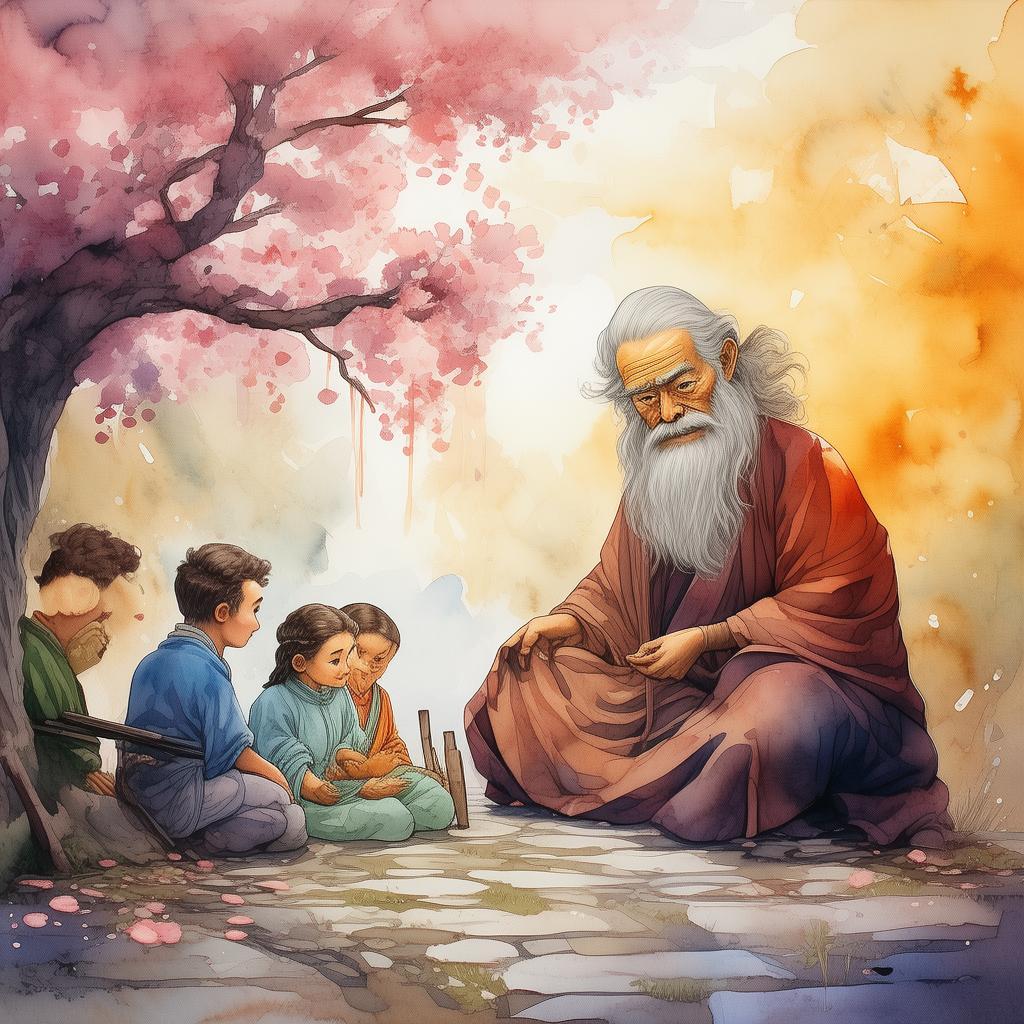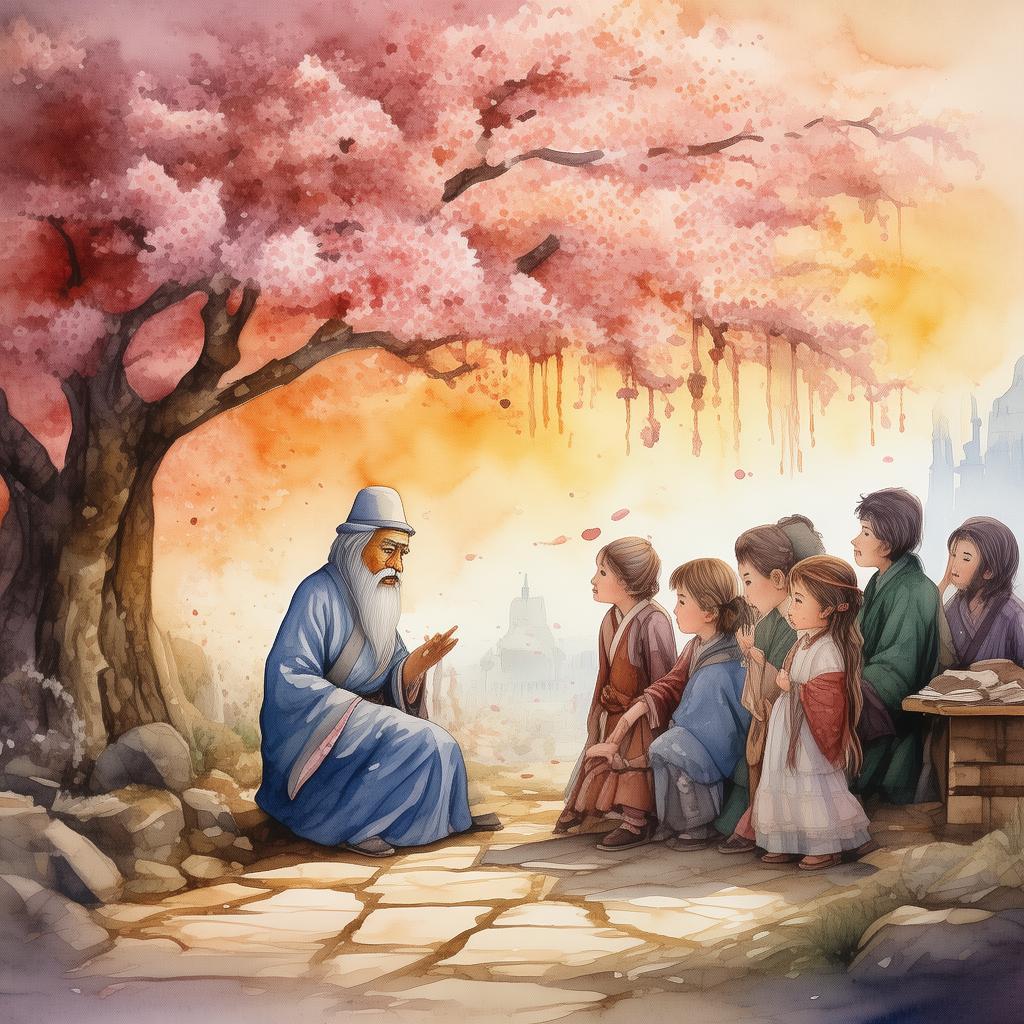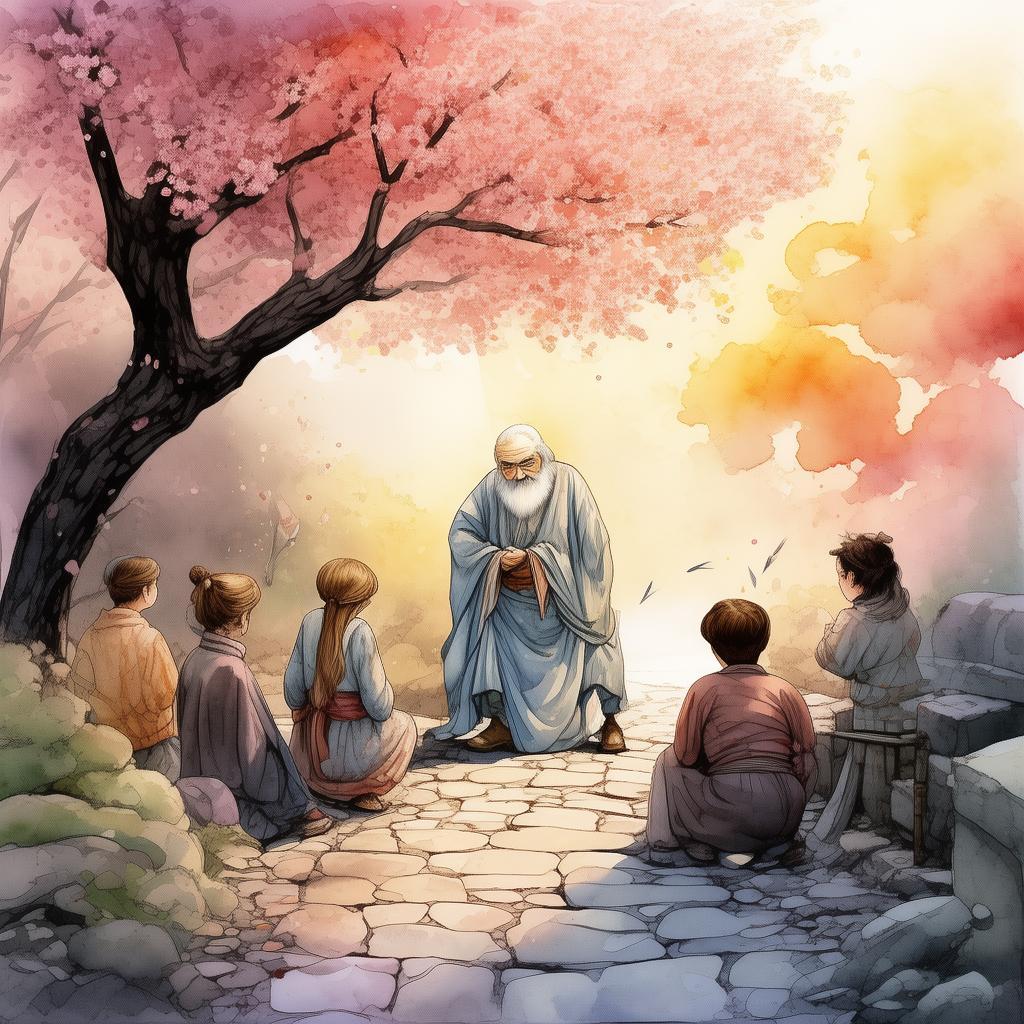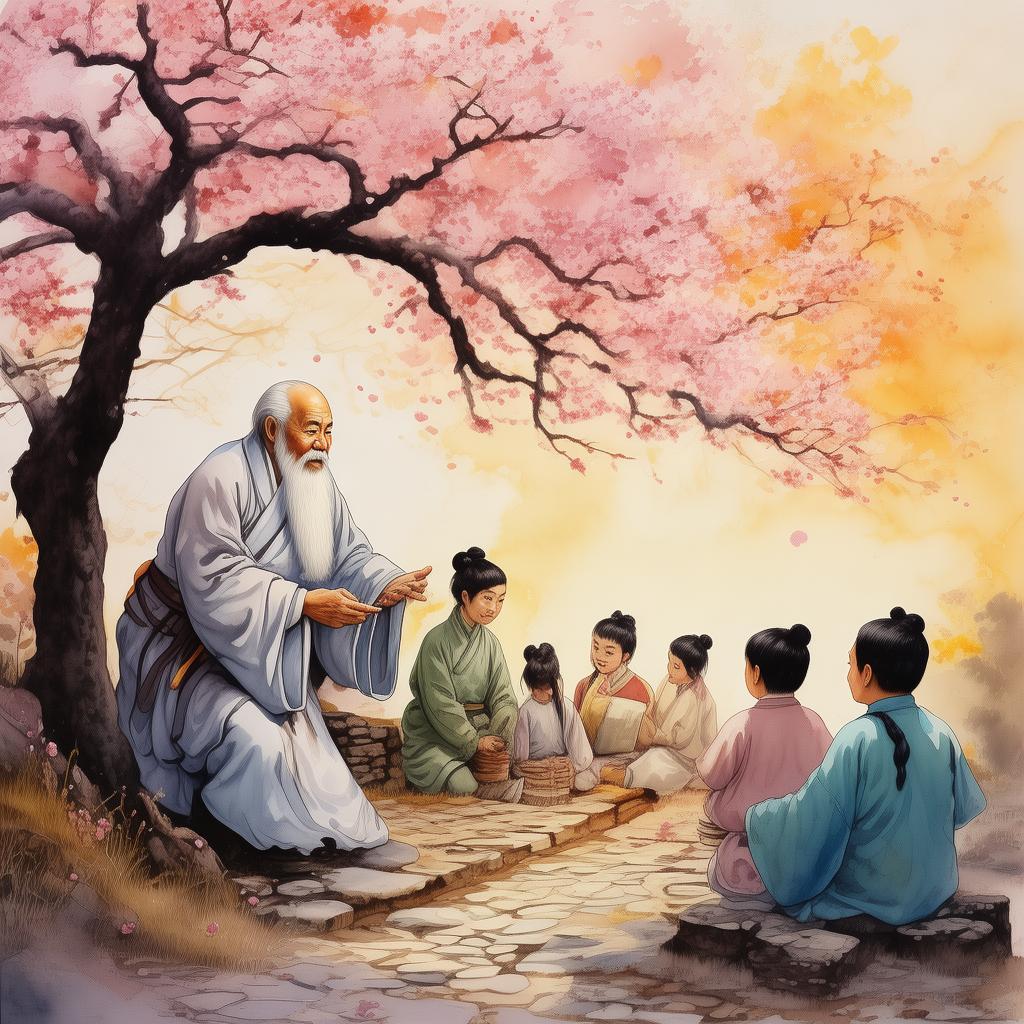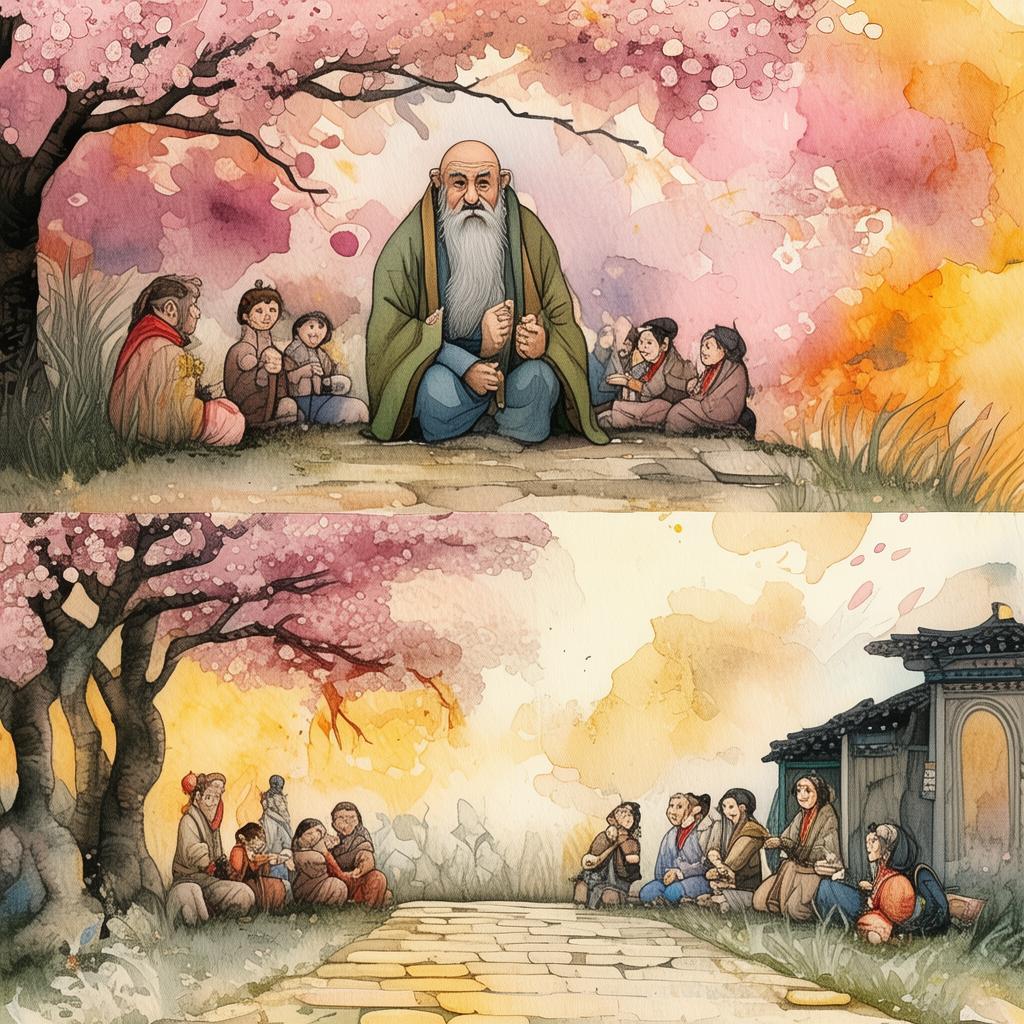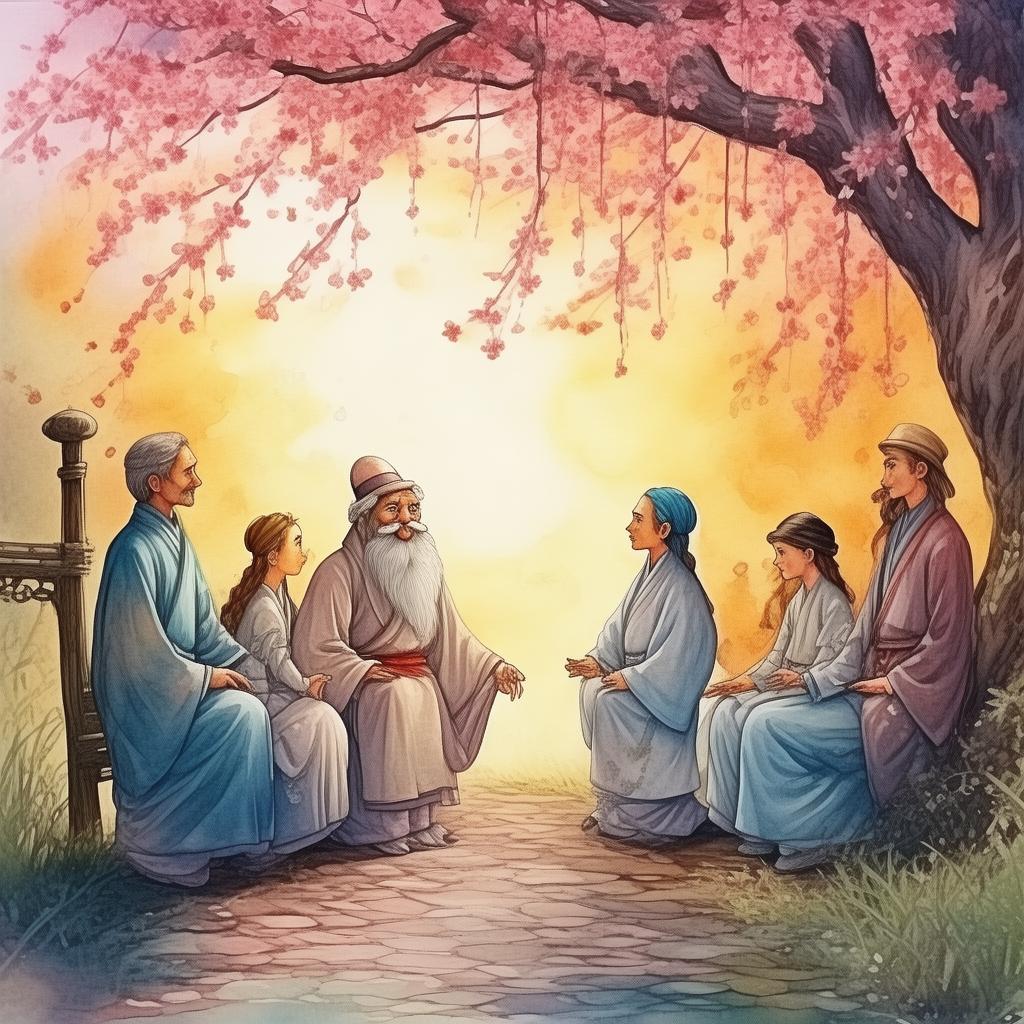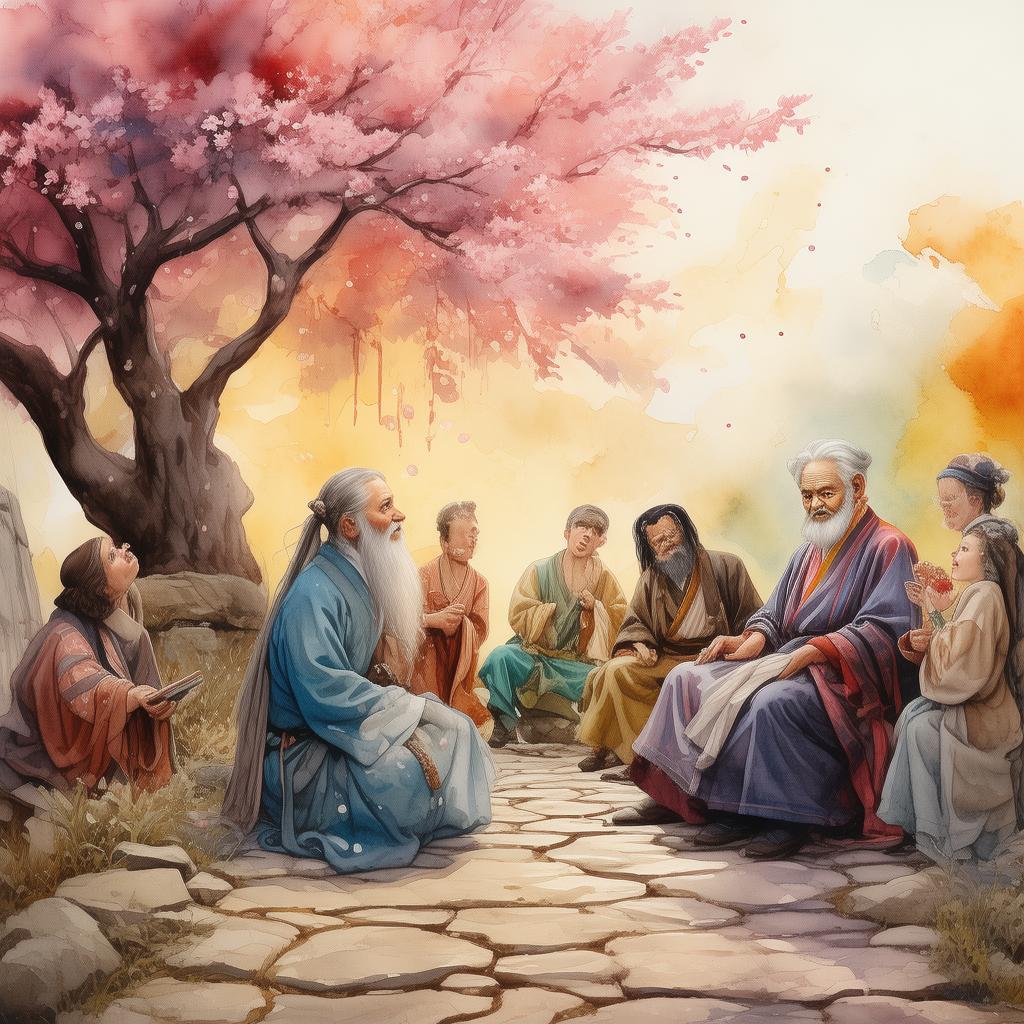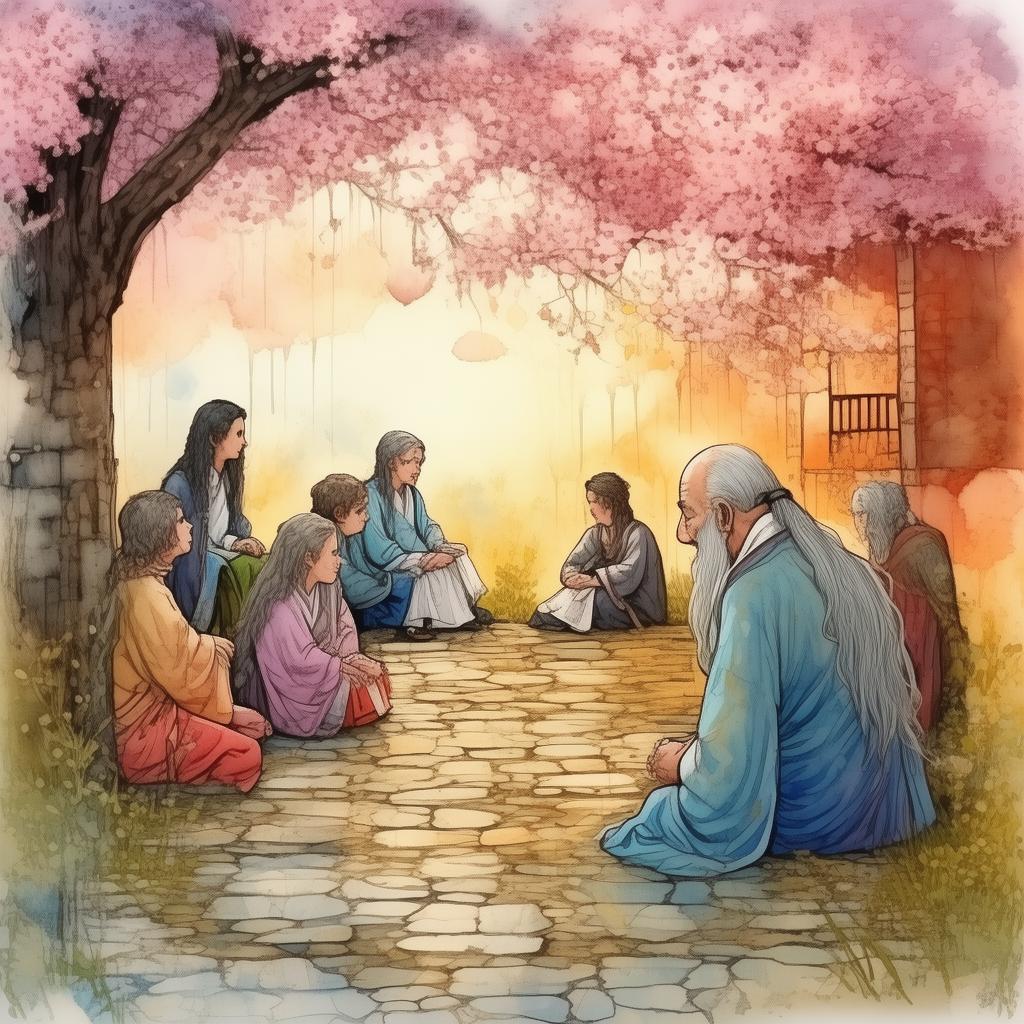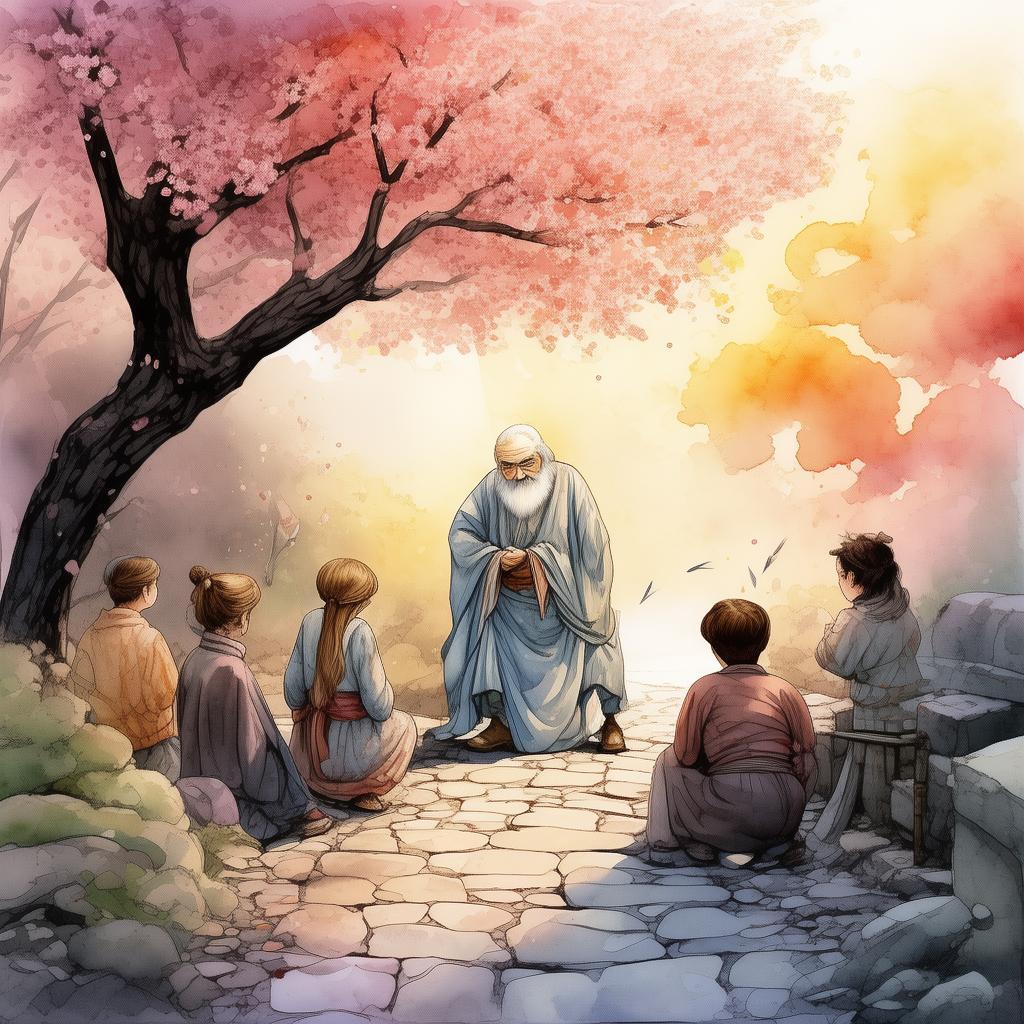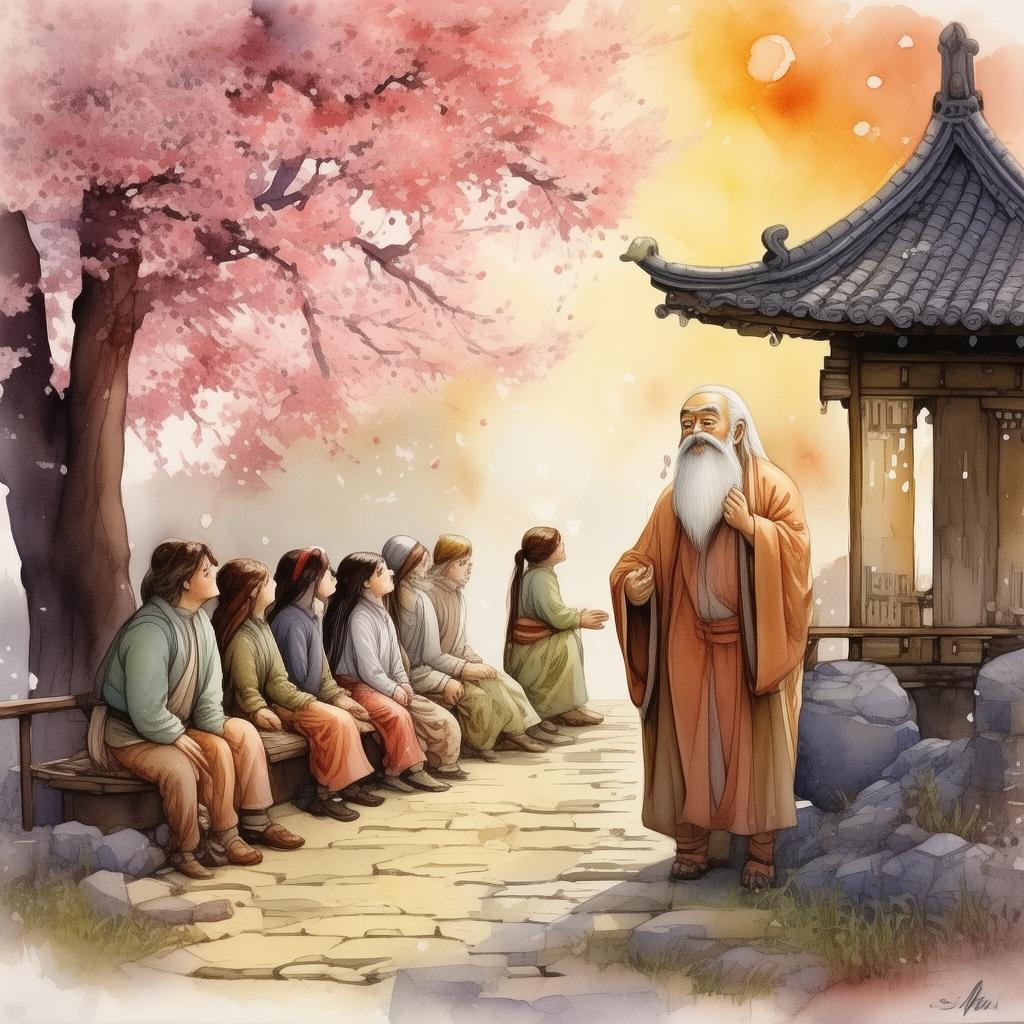The Starry Paradox: A Quest Beyond the Known
In the ancient city of Lintang, where the night was painted with the most vivid tapestries of the cosmos, Liu, a young and ambitious scholar, had always been captivated by the stars. His fascination was not merely academic; it was a yearning for the unknown, a quest to understand the very fabric of existence.
One evening, as Liu gazed upon the night sky, a peculiar phenomenon caught his eye. A star, or perhaps a celestial object, appeared to defy the laws of nature, moving in ways that seemed impossible. It was as if it were alive, or as if it were answering a call from the depths of the universe.
Intrigued and determined, Liu set out to find answers. He traveled far and wide, seeking the wisdom of sages and the observations of astronomers. But the more he learned, the more he realized that the riddle was not one of the heavens, but one of the mind.
It was then that he heard of an ancient text, hidden in the depths of the Great Library, known as "The Paradox Paradox." This text, said to be the work of an ancient philosopher, contained a riddle so profound that it could only be solved by one who possessed the purest mind and the keenest intellect.
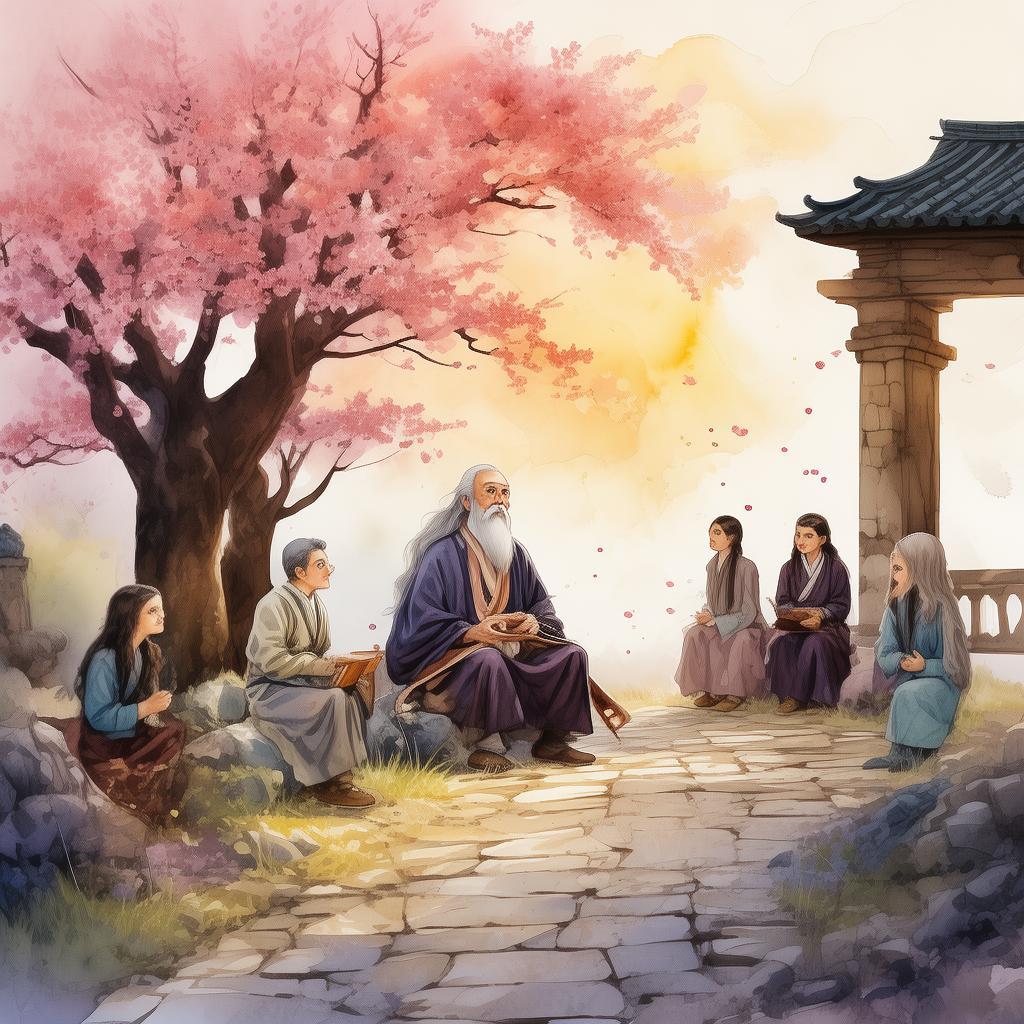
Liu’s journey led him to the Great Library, a place of ancient knowledge and wisdom, where the air was thick with the scent of aged parchment and the hum of countless thoughts. He spent days and nights searching through the endless shelves, his eyes weary but his determination unwavering.
Finally, he found it. The Paradox Paradox lay before him, a collection of riddles and paradoxes that stretched the limits of logic and understanding. The first riddle he encountered was simple on the surface but revealed a depth that could only be plumbed by the most patient and thoughtful mind.
"What is it that is not there and yet is everywhere, that is not anything and yet is everything, that is beyond time and space and yet is the very essence of existence?"
Liu pondered this for days. He questioned the wisdom of the ancients, the nature of reality, and even the very essence of his own being. He delved into philosophy, mathematics, and the natural sciences, searching for clues that would lead him to the truth.
As the days passed, Liu’s understanding of the riddle grew. He realized that the answer was not a single thing but a concept, an idea that transcended all things. It was the essence of the universe, the source of all existence, the void that contained all things.
With this realization, Liu felt a strange sense of peace. He understood that the riddle was not a test of knowledge but a journey into the depths of the human mind. It was a quest to understand oneself and the world around them.
The next riddle in the Paradox Paradox was more challenging. It involved a series of paradoxes that seemed to defy logic and reality. Liu spent months on this one, constantly revisiting it, always finding new layers of meaning.
The riddle read: "A man is in a room with two doors. One door leads to certain death, and the other leads to certain life. The man must choose which door to take, but he is told that the other man, who entered the room before him, chose the wrong door. Which door should he take?"
Liu realized that the answer to this riddle was not in the choice of doors but in the understanding of the man’s decision-making process. It was about the importance of intuition and the trust in one’s own judgment.
As Liu worked through the riddles, he began to see the interconnectedness of all things. He understood that the universe was a vast web of cause and effect, and that each action had consequences that ripple through time and space.
The final riddle in the Paradox Paradox was the most difficult of all. It was a riddle about the nature of the universe itself. Liu spent years pondering this riddle, traveling to far-off lands, seeking enlightenment from the wise.
The riddle was: "What is the nature of the universe, and how does it exist?"
Liu came to understand that the universe was a paradox, a place of both order and chaos, of both certainty and uncertainty. It was a place where the impossible was possible, and where the true nature of reality could never be fully known.
In the end, Liu realized that the riddle was not a quest for answers, but a journey for understanding. It was a journey that would last a lifetime, a journey that would forever change the way he saw the world.
As Liu stood before the night sky, gazing upon the stars that had once intrigued him, he felt a profound sense of fulfillment. He understood that the universe was a place of infinite possibilities, and that the quest for knowledge was a journey without end.
The Starry Paradox was not just a riddle; it was a lesson in life, a reminder that the true nature of reality is a mystery that we must all face. Liu had found the answer within himself, and in doing so, he had unlocked the door to a new understanding of the world and his place within it.
✨ Original Statement ✨
All articles published on this website (including but not limited to text, images, videos, and other content) are original or authorized for reposting and are protected by relevant laws. Without the explicit written permission of this website, no individual or organization may copy, modify, repost, or use the content for commercial purposes.
If you need to quote or cooperate, please contact this site for authorization. We reserve the right to pursue legal responsibility for any unauthorized use.
Hereby declared.
